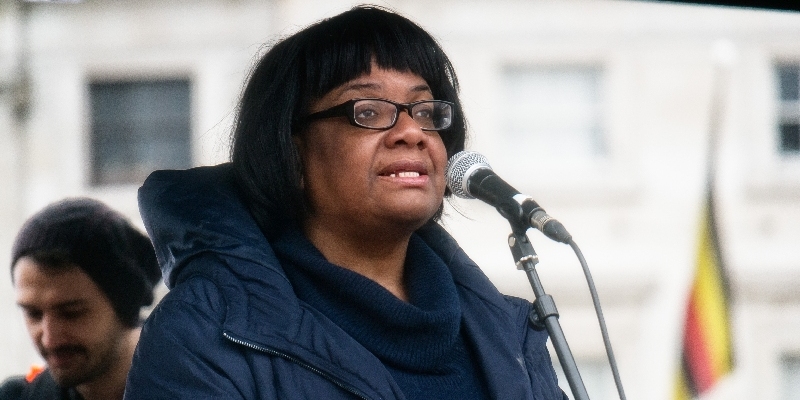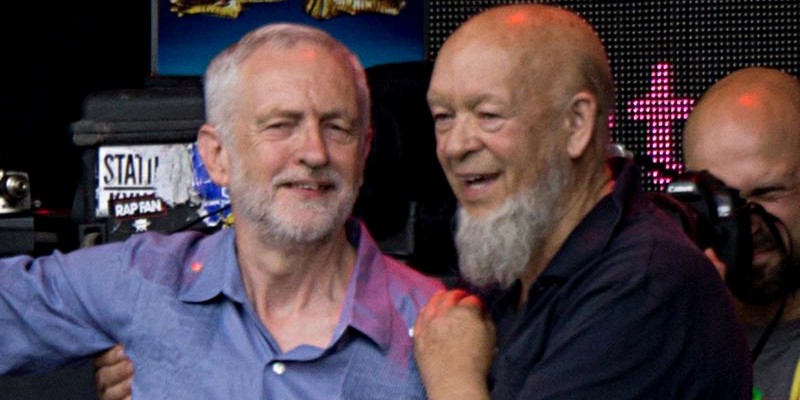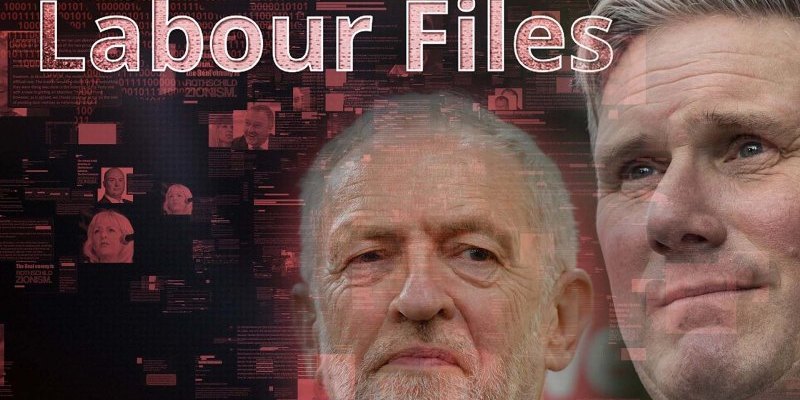It is clear that Tony Greenstein has abandoned any pretence of adhering to class politics: that is, the class politics of the working class. Jack Conrad defends the Marxist programme against those who advocate yet another broad-front halfway house
Replying to Tony Greenstein’s shameful accusation that those who resigned from Labour Against the Witchhunt’s steering committee have resorted to the same “big lie” tactics as Joseph Goebbels is unnecessary (‘Not a liquidation?’ Weekly Worker December 9 2021). The long record of Tina Werkmann, Jackie Walker, Kevin Bean and Stan Keable speaks for itself. They are honest comrades holding honest views.
So has LAW been liquidated? Comrade Greenstein pleads that “nowhere in the successful resolution” was there any mention of “liquidation” or “closing down” LAW. True, but this is clearly a pedantic attempt to pull wool over eyes.
In politics, as in other walks of life, context is all. Comrade Greenstein is on record as saying that the fight in the Labour Party is over, that trade unions should disaffiliate, that voters in the July 1 2021 Batley and Spen by-election should support George Galloway and not Labour’s Kim Leadbeater. Many attending the LAW members’ meeting expressed similar views and, no less to the point, that is also the case with the leadership slate comrade Greenstein got installed on November 27. So, while the words ‘liquidation’ and ‘closing down’ did not appear in motion 1, only someone who wants to cover up, to obfuscate, to hoodwink, would object to such an assessment.
Indeed, presumably working according to the motto, ‘Attack is the best form of defence’, we find comrade Greenstein himself making accusations of liquidationism:
If anyone has liquidated LAW, it is its steering committee. For the past two years it has done very little, even against the Corbyn witch-hunt. Against Starmer’s witch-hunt it has been paralysed. What it has done, like the picket of Labour’s HQ in protest at the proscriptions and the Not the Forde Inquiry at the Resist at the Rialto has been done with LIEN [Labour In Exile Network].
This is simply childish. LAW has done very little, has been paralysed even, but despite this paralysis has maintained a professional looking website, gained members, picketed Labour Party HQ, organised Not the Ford Inquiry at the Resist event at this year’s Labour conference in Brighton. Of course, these actions have been organised with a range of others and not only LIEN (there were the Labour Left Alliance, Labour Campaign for Free Speech and Labour Party Marxists too). And all in the midst of the Covid-19 pandemic, social mixing restrictions and two lockdowns, remember.
It is perfectly understandable why in practice comrades want to abandon the fight in the Labour Party. Many have been shamefully expelled or suspended, their reputations trashed and besmirched. The official Labour left has proved spineless, ineffective and treacherous. After all, under Jeremy Corbyn and Jennie Formby the witch-hunt was actually ramped up. Disgracefully, in a futile attempt to appease the right, they stayed silent, while, one after another, their own close comrades and friends were thrown under the bus. And now, making matters even worse, Sir Keir is firmly in the saddle and riding high in opinion polls.
Frankly, while we were disappointed by the November 26 vote at the LAW members’ meeting, we were not surprised. An unprecedented reactionary tornado is ripping through the Labour Party and those who naively counted on Corbyn, those who lack strategic moorings, those who have little or no understanding of class politics are swept away, left desperately clutching at anything with appears to offer hope.
If comrade Greenstein and co were committed to, had their sights on, a serious party, it would be another matter entirely. We would still disagree with abandoning the Labour Party as a site of struggle – for us that is like abandoning the trade unions. But what is being proposed lacks any credibility: variously a Corbyn movement without Corbyn, a rainbow coalition, a classless people’s party or more commonly a Labour Party mark two. Taking their cue from Ken Loach, this undefined melange is what the successful motion 1, moved by Tony Greenstein and Esther Giles, and carried 47:27 on November 26, takes as its “starting point”. A recipe for confusion, disunity and one micro-split after another.
Strategy
Let us move the argument on by quoting comrade Greenstein once again. He claims that we have never had “any analysis of the Corbyn movement: still less any strategy worthy of the name”. Well, I know the comrade is a regular reader of the Weekly Worker, even an occasional contributor, but obviously not an attentive one. Maybe he is becoming forgetful? Who knows.
Either way, he is talking rubbish. Our attitude towards the Jeremy Corbyn leadership of the Labour Party was worked out in advance: that is, well before his actual election, and with far greater foresight, and with far greater worth and precision, than any other campaign, committee, group or party on the left. Why? Because we have a fully worked out strategy.
Labour needs be refounded as a united front of a special kind and politically armed with a Marxist programme and put under a tried and tested Marxist leadership. Such a perspective can only be realised, of course, through the struggle for a mass Communist Party. Needless to say, we envisage once again opening up the Labour Party to the affiliation of leftwing groups and parties – crucially the affiliation of the CPGB. So this is a twin-track strategy, with the main emphasis on the struggle for a mass Communist Party.
Corbyn got into the leadership by a historical accident. Naturally we, and many others, agitated at a constituency level to persuade Labour MPs to ‘lend him’ their vote. Much to my surprise, this actually worked. The ‘morons’ allowed him to run. Once he was on the ballot, we were convinced he would easily win. Not just because of the £3 supporters, but because of the deep well of discontent within the then existing ranks of the Labour Party membership.
What about the mass influx? Did we leave it unanalysed? Of course not. The suggestion is laughable. Corbyn appeared as a vehicle, a focus, a saviour for hundreds of thousands. It was not merely a rejection of Ed Miliband’s austerity-lite politics, as comrade Greenstein suggests. An older generation who had left the Labour Party in disgust over Tony Blair and the Iraq war returned. A younger generation who felt betrayed over student loans, the commodification of education, the lack of affordable housing, low wages and job insecurity – well, they flocked in. But what was notable about them – especially, sad to say, the younger generation – is that they were not politically determined, not politically educated and therefore did not fully engage. They voted Jeremy Corbyn against Owen Smith, but had not much of a clue when it came to national executive elections. Tens of thousands joined Momentum, but, with the connivance of Corbyn and his Straight Leftist advisors, they were relegated to mere spear-carriers … though a select few carved out lucrative political careers for themselves. Today, of course, Momentum is not only much reduced: it is an empty husk.
Bizarrely, comrade Greenstein says we write off these people and are “happy” to see 150,000 of them “disappear”. Nonsense, yet again. No, comrade, we do not dismiss them and nor are we happy to see them go. We want them educated, we want them organised. But this will not happen if we attempt to do the impossible and follow them to their 150,000 different destinations.
Showing a rather sad lack of self-awareness, comrade Greenstein likes to boast of his amazing powers of prediction. This is him in full flight: “On April 20 2017, shortly after the general election was announced, when everyone was predicting disaster, I wrote: ‘Labour can win if Corbyn is bold – the key issue is poverty and the transfer of wealth.’” He goes on: “And then on June 3: ‘General election – is Labour on the threshold of victory?’” Well, what was the result? Against a hapless Theresa May, Labour experienced a tremendous surge in support in the last week or two of the campaign and secured 262 seats. But that still left the Tories with 317 seats. So comrade Greenstein got it wrong. Nothing to be ashamed of, but nothing to brag about either.
What of ourselves? We never expected the election of a Corbyn-led Labour government. Neither in 2017 nor in 2019. After all a clear majority of the Parliamentary Labour Party was ranged against him. To become prime minister he would have to secure a vote of confidence in the House of Commons. Only if he could be assured of that would the queen graciously call him to Buckingham Palace.
There was, though, an extraordinarily remote possibility of such a scenario. Say a million to one. However, what was important was not the odds. It is what the rank and file of the Corbyn movement thought and believed. In their minds they saw Corbyn soon entering the famous black door of No10 as prime minister and then realising all their hopes and dreams.
Hence our two warnings.
Firstly, the “bold” promises contained in For the many, not the few or It’s time for real change were, in reality, very timid … and they were not going to be delivered. True, the Corbyn leadership was committed to reversing austerity, increasing the economic role of the state, repealing some anti-trade union laws and introducing some minor constitutional reforms. But at best that amounted to an illusory attempt to run British capitalism in the interests of the working class. Meanwhile, wage-slavery continues, Britain remains a monarchy, subject to judge-made law, one of the ‘five eyes’, a core imperialist power, a member of Nato and armed with US-controlled nuclear weapons. To call such a programme ‘socialist’ – and the Labour Representation Committee was not alone in this – is inexcusable.
Secondly, what would the capitalist class, the political establishment and the deep state do in the event of a Corbyn-led government? Despite the manifesto being far from radical, there would be a run on the pound, sabotage by the Labour right, a constitutional coup, an army mutiny, US ‘pushback’, etc. Even with a crisis of expectations, given the suffocating hold of constitutionalism and narrow trade unionism, popular resistance would prove to be feeble and ineffective, and end in a crushing defeat. Maybe a few dozen of us would be killed ‘resisting arrest’, a few hundred more would be detained at her majesty’s pleasure … but widespread demoralisation would inevitably follow.
In others words, while we soberly assessed the situation, others on the left blithely urged on a crushing defeat. They wanted a “bold” Corbyn government running a nice capitalism, while we, on the other hand, seek to establish an explicitly socialist opposition that stands against the existing constitution, that educates and prepares the working class to become the ruling class, that positively avoids the temptation of forming a government when there is not the least chance of delivering what we Marxists call the minimum programme (ie, the maximum that can be achieved under capitalist conditions). Back in the late 19th century this was ABC common sense in the workers’ movement: nowadays it is regarded as odd, strange, almost unhinged – testimony to a general degradation of our political culture.
Going nowhere
Comrade Greenstein believes that going for a mass Communist Party is hopeless – well, certainly under present-day historical circumstances, which, to say the least, are hardly revolutionary. “Unsurprisingly”, he says, “this project has gone nowhere.” His reasoning is philosophically revealing: “You cannot from existing levels of consciousness and organisation leap to a revolutionary consciousness. You have to have something in between. Revolutionary fish need a sea in which to swim.”
Well, beginning with the last statement, we agree with the fish and the sea analogy (presumably knowingly borrowed from Mao Zedong). With students, big strikes and protests around the climate emergency, we find a ready audience for our ideas. But the key is political organisation and one of the seas we swim in is the historically established Labour Party, with its hundreds of thousands of individual members and millions of affiliated members.
And here, precisely because it matters to the ruling class, because it needs a trustworthy second eleven, a safe alternative party of government, we have the ongoing ‘Anti-Zionism equals anti-Semitism’ witch-hunt and the Starmer leadership proscribing LAW, LIEN and Socialist Appeal. And here, precisely because of the instinctive, stubborn, often wonderfully creative resistance put up by the rank and file, we have an elemental clash of class against class. That explains why LPM is committed to staying and fighting in the Labour Party, including, of course, alongside those suspended and expelled members, not seeking refuge in yet another rickety, broad-left lifecraft.
What about the claim that one “cannot from existing levels of consciousness and organisation leap to a revolutionary consciousness”? The claim that one “must have something in between”? This speaks to a deep-seated bourgeois ideology. Basic dialectics tells us that things develop quantitatively and then at some point leap qualitatively from one state to another state. Once the temperature rises above 0℃, water – ie, H2O – leaps from ice to liquid. The same goes with water turning from liquid to steam (gas). It happens at a definite moment: 100℃ (at sea level).
Understandably bourgeois ideology mortally fears the qualitative leap – precisely because of its revolutionary implications. So, yes, in biology, classical Darwinism posits an endless series of intermediary forms and stages. Charles Darwin specifically warned against the leap in his Origin (1859) because of his dread of a revived Chartism. Yet radical biologists such as Stephen Jay Gould and Niles Eldredge have shown that his gradualism was mistaken, false – yes, rooted in a bourgeois fear of social revolution. There is speciaisation, the leap. The same goes for the other sciences. Did physicists need an intermediate stage between the steady state theory of the universe and the theory of the expanding universe? There were futile attempts to establish such a halfway house, but none of them stood up to serious examination. Nowadays the expanding universe is simply taken as a proven fact. Certainly the halfway house theories were not needed in order to arrive at the truth. They were diversions.
Marxism itself represents a qualitative leap from the contemplative materialism of Ludwig Feuerbach. On a more prosaic level people can and do go from holding racist/national chauvinist views to almost in an instant seeing the light. Ricky Tomlinson comes to my mind. There are countless other examples that could be given. But let us suffice with just two. There is religious conversion and conversion from religion. There is reformism and being won over to Marxism.
However, what comrade Greenstein understands by establishing a mass Communist Party is yet another repetition of the half-crazy confessional sects that he has known from first-hand experience and has rightly learnt not to love. Even then, though, he gets things wrong. In his account the confessional sects only speak to those “who agree with you”. No, not even true with the CWO ‘left’ communists, the SPGB and the Northite WSWS. They are quite prepared to talk to all manner of people who disagree with them: eg, on demonstrations. But the reality is that most confessional sects only speak to organisations safely to their right – that is the certainly the case with the SWP, CPB and SPEW. Does that apply to the CPGB? Surely not. We have a proven record of debating with organisations both to our left and to our right … but – and this is vital – throughout, militantly, resolutely, undeviatingly, defending a definite political programme.
Not revolutionary
Comrade Greenstein confidently announces that a “precondition for forming a socialist party is a mass socialist movement”. If by a “socialist party” he means a revolutionary Marxist party and if by “mass socialist movement” he means mass socialist consciousness, well, that would provide ideal, almost perfect conditions. But a “precondition”? No.
Did the formation of Germany’s Social Democratic Party in 1875 require a pre-existing mass socialist consciousness? There was a certain interest in socialistic ideas, that is true – not least because of the success of workers’ education associations. But the mass socialist movement, mass socialist consciousness, including mass trade unions – that came after 1875, through the SDP and its MPs, press, libraries, clubs, choirs, local branches and the production and wide dissemination of Marxist literature. That was the general pattern for the Second International and the Third International … especially in the colonial and semi-colonial world of the 1920s. Eg, the Communist Party of China, formed in July 1921, had 50 founding members. By 1925 membership had risen to 2,428 and there was rapid progress in influencing the urban working class. By 1927 the pro-CCP militia controlled Shanghai.
What needs to be understood is that socialist – ie, Marxist – parties, are built top-down, not bottom-up. What is primary is the programme: ie, theory. It is from there to the masses and in the process, of course, theory is enriched, concretised, taken to new heights. It should also be understood that Marxist parties do not require revolutionary conditions in order to grow. They can grow in peaceful, seemingly almost uneventful, conditions. And the fact of the matter is that such parties, because of their tenacity, cohesion, discipline and theoretical and political training, are far better at obtaining economic, social and democratic concessions than explicitly reformist parties or routine trade unionism. Certainly if we wait to form a revolutionary party till there is a revolutionary situation, then it will be too late … we would have already lost.
According to comrade Greenstein, we in the CPGB “write off anything bar the formation of a revolutionary Marxist Party”. He calls it an “all or nothing” approach, out of which “you are likely to get nothing”. A neat line. But there is a little problem: it is simply untrue. Leave aside our vastly disproportionate role in various unity projects compared with our numbers – the most promising being the Socialist Alliance in the early 2000s (which was wrecked first by SPEW and finally by the SWP). We do not write off campaigns around runaway climate change, Palestinian solidarity, student grants, the trade union movement, the Labour Party or for that matter the many and various organisations of the existing left. We simply say that they are inadequate if we are going to empower the working class and ready it for state power.
So, yes, we do say that the key question today is the formation of a Communist Party. We in the CPGB have the name, but we fight to make the name a reality. The Communist Party must be made into a part – the leading part – of the working class. To begin with, in embryo, that might, in present-day British conditions, consist of just a few thousand; maybe brought together through a series of splits and fusions within the existing left (including those in the Labour Party). But to become real it must go on to organise hundreds of thousands, millions.
Comrade Greenstein discounts this strategic perspective. Why? Because “we are not living in revolutionary times”, because “the class struggle is at an all-time low”, because “the working class has been atomised as a result of globalisation and the Thatcherite attack”. Of course, a class that has been atomised is no longer a class: it is merely an amorphous mass. That aside, he goes on: “The Russian Revolution” happened “over a hundred years ago”. Nothing controversial here – we can count too. But he has a point to make, a big one: “There must be political and material reasons why there has been no repeat. Should we not examine them?” Leave aside the 20th century being a century of wars and revolutions: from Russia, Germany and Austria to China and Vietnam, from Yugoslavia and Cuba to Portugal and Afghanistan. The notion that we, and numerous others, have not tried to get to grips with the century of the unexpected is frankly risible. We might be totally wrong, we might be near getting it right, but, yes, we have provided answers. Comrade Greenstein, seems altogether oblivious – sad, what a pity.
In the same short-sighted, philistine spirit he blunders on:
The working class as an agent of revolutionary change in the west is open to question. Especially in the light of working class support for the rise of parties of the far right in Britain and Europe, which the vote for Brexit and Ukip represented.
So, if it is not the working class that is the “agent of revolutionary change”, what force does comrade Greenstein look to? Throughout modern history – that is, under conditions of something like universal suffrage – people, including working class people, have voted for all manner of reactionary parties and candidates: based on notions of common nationality, common religion, etc. Meanwhile, capital remorselessly extracts surplus value and the class struggle is fought out every minute, every hour, every day, every week, every year … workers resist, fight back, organise together to limit competition and improve conditions and thereby spontaneously generate a tendency towards collectivism and a readiness for the ideas of Marxism and joining the fight for international communism. That outcome is not automatic, but it does explain why the Marx-Engels team thought that only the working class “is a really revolutionary class” (Communist manifesto).
What is clear is that in the west comrade Greenstein has given up on the working class as the “agent of revolutionary change” (ie, the advanced, core, capitalist counties). Hence, if he really thinks revolutionary change and socialism are possible in a country like Britain, which is seriously open to question, then his only realistic option must be some sort of ethical socialism, which, beginning with his tailism of David Cameron, Peter Mandelson, Caroline Lucas, Chuka Umunna, Anna Soubry and the thoroughly bourgeois remain campaign, inevitably entails a haughty, arrogant, thoroughly stupid, contempt for leave voters and a casual dismissal of the basic tenants of Marxism. A rerun of Eduard Bernstein, Fabianism and Eurocommunism.
Living contradiction
Hence we find comrade Greenstein rubbishing the paradoxical Marxist category, bourgeois workers’ party – first coined by Fredrick Engels, elaborated and defended by Vladimir Lenin and given useful historical background by Theodore Rothstein in his classic study From Chartism to Labourism (1929). Tony Cliff and Donny Gluckstein use the term, “capitalist workers’ party”, in their The Labour Party – a Marxist history (1988). Presumably they did not think their readers could cope with a difficult ‘foreign’ word such a ‘bourgeois’ (which in point of fact is not the direct equivalent of capitalist). Beside that, The Labour Party is one of the worst books I have ever read. But for comrade Greenstein, whether it is a bourgeois workers’ party or a capitalist workers’ party, it is binned as a “meaningless slogan”.
Meaningless? A slogan? No, it is a concept, the result of insightful, indeed profound, thinking. And, if the Labour Party is not a bourgeois workers’ party, then in class terms what the hell is it? Only if you have abandoned class politics – that is, the class politics of the working class – does the concept of Labour being a “bourgeois workers’ party” appear to be a “meaningless slogan”, a Marxist “shibboleth”.
The living contradiction that is today’s Labour Party can be negatively resolved – in favour of the dominant, bourgeois, pole. Tony Blair attempted to do just that, but failed. He wanted to end the historic split with Liberalism. Maybe Sir Keir has the same aim in mind. He certainly wants to fulfil his youthful, Pabloite, dream of becoming prime minister and is willing to sacrifice the left to demonstrate his loyalty to the system. But the trade union link? We shall see. But as well as the negative there is the positive. The contradiction can be resolved by driving out the bourgeois careerists and the triumph of the working class pole. In other words, “refounding the Labour Party as a ‘united front of a special kind’”.
Predictably, dumbly, once again for comrade Greenstein, this too is meaningless. Why? Because “there never was such a united front”. Why? Because “the Fabians, a wholly bourgeois organisation, were one of those founders”. So why, in 1907, did Karl Kautsky – and following him Lenin, albeit it with some revealing reservations – strongly advocate that the Labour Party be accepted as an affiliate to the Second International? It was not really a party, nor was it a straightforward trade union federation. As to the leadership – not the right opportunist Fabians, but the centrist Independent Labour Party – well, despite their socialistic pretensions, they ensured that the Labour Party remained a mere tail of the bourgeois Liberal Party. Similar, politically, in other words, to comrade Greenstein’s “transitional” formation and the likes of himself constituting a mere tail of the bourgeois remain campaign.
Nevertheless, despite all of its many flaws and limitations, the Labour Party represented a real step forward for the working class movement in Britain – at the time, potentially the most important component of the international socialist movement. No less to the point in terms of this argument, all working class organisations – including the Social Democratic Federation and, after it, the British Socialist Party – were unproblematically accepted as affiliates. Indeed the SDF was given two automatic NEC seats along with the ILP … compared with a single seat for the Fabians. Hence, with the encouragement of the Second International’s leadership, the continued spread of Marxist ideas and through concerted political struggle (not least in the trade unions, where the left had a strong presence), there existed the possibility of the Labour Party becoming a fully working class organisation.
Dismissing the original Labour Party as a “united front of a special kind” because of the presence of the Fabians, is not to see the forest for a single tree. One might as well dismiss the soviets in Russia as “meaningless” because of the presence of delegates from Georgi Plekhanov’s very small national chauvinist faction. No, the soviets were a “united front of a special kind” (Trotsky), because they united all working class trends, factions and parties – not merely ephemerally, but permanently (well, until the right and the centre minority finally walked … after the Bolshevik seizure of state power – carried out, of course, in the name of the workers, soldiers and peasant soviets).






